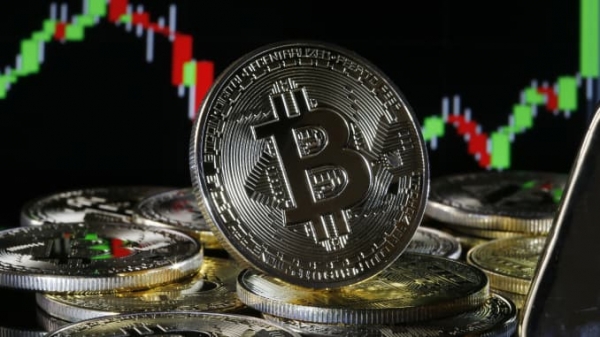Not Bitcoin. This will be the future of money - Business2Business
This has clear advantages. To avoid becoming a lightning rod for fresh speculation means that the global economy backed by FedCoin, the digital euro, and the Ch
- by Gaurav Grover 2021-05-25 07:00:43
Bitcoin's wild gyrations in 2021 have made sure of one thing: the future of money will be electronic, but it will not remotely resemble a cyberpunk utopia. People’s power will bow to sovereigns’ might.
The mania and panic of decentralized cryptocurrencies increase the attraction of their coming rivals: digital cash, issued by central banks. These tokens will be staid, centralized, and controlled by the state. This is exactly what users will want in an Internet of Things world where machines need to settle claims with each other all the time, on the spot, but without contributing to global warming.
Official electronic currencies will be a new kind of central bank responsibility along with physical cash, although, for investors betting on the future value of the dollar, yen, or euro, they won’t be a novel asset class.
This has clear advantages. To avoid becoming a lightning rod for fresh speculation means that the global economy backed by FedCoin, the digital euro, and the Chinese e-CNY will demand less burdensome demands on energy resources compared to cryptocurrencies. In the absence of a trusted middleman, the 'mining' protocol, or proof of work protocol that keeps the blockchain safe from double-spending attacks, requires a lot of energy-consuming hardware. Between Bitcoin and Ethereum, electricity consumed can light up 16 million American households

Not so for the distributed ledgers that will verify transfers of official coins. These ledgers will only be maintained by a select group of brokers with the permission of the Central Bank. Instead of being in a race to solve puzzles faster than malicious actors, as we can see with decentralized cryptocurrencies, nodes in the network can lock up their own funds to support legitimate transactions.
This approach, known as proof of stake, will require a fraction of your energy proof-of-work needs. Ethereum intends to switch. Cryptocurrency Ether will replace appliances and electricity as a necessary investment to secure the network. Auditors will earn fees by locking at least 32 Ether. (That’s a $72,000 commitment as I write.) If they misbehave, stop working, or fail to do their job, processors may lose their guarantees.
A central authority can perhaps run such a network better. After all, those who do bail deals should be looking good in the game, they claim - and a trustworthy person should make sure of this. As Chi Lo, an economist at BNP Paribas Asset Management Asia, says: “The identity of the bearer is inevitably required for verification" of balances on a digital ledger. “Who has the legal identity of the coin holders? The government!"
Central banks, not constrained by the amount of cash they can create out of thin air, are using that flexibility to avert disaster, as they did recently during the Covid-19 pandemic. By contrast, a “bitcoin-based” economy can be dangerous due to the limited money supply, and as Lo says, if you fix the nominal variables, the real output must adapt aggressively to absorb any economic shocks.
Also Read: How Does Bitcoin Mining Work? What Is Crypto Mining?
POPULAR POSTS
Loan EMIs to Drop as RBI Slashes Repo Rate - Full MPC December 2025 Highlights
by Shan, 2025-12-05 11:49:44
Zoho Mail vs Gmail (2025): Which Email Platform Is Best for Businesses, Startups, and Students?
by Shan, 2025-10-09 12:17:26
PM Modi Launches GST Bachat Utsav: Lower Taxes, More Savings for Every Indian Household
by Shan, 2025-09-24 12:20:59
$100K H-1B Visa Fee Explained: Trump’s New Rule, Clarifications & Impact on Indian Tech Workers
by Shan, 2025-09-22 10:11:03
India-US Trade Deal Soon? Chief US Negotiator Arrives in Delhi as Talks Set to Begin Tomorrow
by Shan, 2025-09-15 11:54:28
Modi Meets Xi: Trump’s Tariffs, Strategic Autonomy, and the Future of Asia’s Power Balance
by Shan, 2025-09-03 06:40:06
Google Claims Gemini AI Uses Just ‘Five Drops of Water’ Per Prompt, Sparks Debate
by Shan, 2025-08-22 12:34:27
RECENTLY PUBLISHED

Pine Labs IPO 2025: Listing Date, Grey Market Premium, and Expert Outlook
- by Shan, 2025-11-05 09:57:07

The Agentic Revolution: Why Salesforce Is Betting Its Future on AI Agents
- by Shan, 2025-11-05 10:29:23

Top 10 Insurance Companies in India 2026: Life, Health, and General Insurance Leaders Explained
- by Shan, 2025-10-30 10:06:42

OpenAI Offers ChatGPT Go Free in India: What’s Behind This Big AI Giveaway?
- by Shan, 2025-10-28 12:19:11

Best Silver Investment Platforms for 2025: From CFDs to Digital Vaults Explained
- by Shan, 2025-10-23 12:22:46





 Subscribe now
Subscribe now 